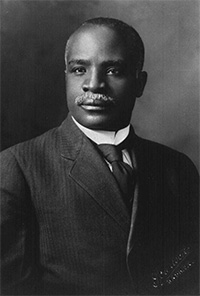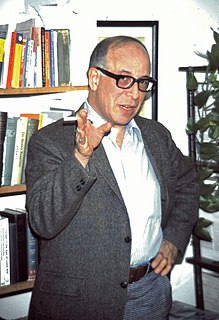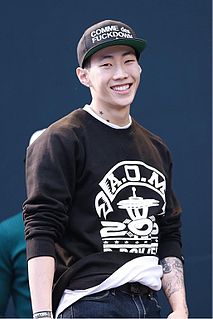A Quote by Willem de Kooning
Whatever an artist's personal feelings are, as soon as an artist fills a certain area on the canvas or circumscribes it, he becomes historical. He acts from or upon other artists. An artist is someone who makes art too. He did not invent it. How it started — "to hell with it." It is obvious that it has no progress. The idea of space is given him to change if he can. The subject matter in the abstract is space. He fills it with an attitude. The attitude never comes from himself alone.
Related Quotes
I really believe in empty spaces, although, as an artist, I make a lot of junk. Empty space is never-wasted space. Wasted space is any space that has art in it. An artist is somebody who produces things that people don't need to have but that he, for some reason, thinks it would be a good idea to give them.
One of the major changes in attitude that occurred in the world of art as we moved from the nineteenth into the twentieth century was that the twentieth century artist became more involved with personal expression than with celebrating exclusively the values of the society or the church. Along with this change came a broader acceptance of the belief that the artist can invent a reality that is more meaningful than the one that is literally given to the eye. I subscribe enthusiastically to this.
The trouble with science fiction is that you can write about everything: time, space, all the future, all the past, all of the universe, any kind of creature imaginable. That's too big. It provides no focus for the artist. An artist needs, in order to function, some narrowing of focus. Usually, in the history of art, the narrower the focus in which the artist is forced to work, the greater the art.
Why was the painting made? What ideas of the artist can we sense? Can the personality and sensitivity of the artist be felt when studying the work? What is the artist telling us about his or her feelings about the subject? What response do I get from the message of the artist? Do I know the artist better because of the painting?
When I taught art, I was always asked, 'How do you know you're an artist? What makes you an artist?' And to me, it's like breathing. You don't question if you breathe; you have to breathe. So if you wake up in the morning, and you have to realize an idea, and there's another idea, and another, maybe you are really an artist.
What makes someone an artist? I don't think is has anything to do with a paintbrush. There are painters who follow the numbers, or paint billboards, or work in a small village in China, painting reproductions. These folks, while swell people, aren't artists. On the other hand, Charlie Chaplin was an artist, beyond a doubt. So is Jonathan Ive, who designed the iPod. You can be an artist who works with oil paints or marble, sure. But there are artists who work with numbers, business models, and customer conversations. Art is about intent and communication, not substances.
Fine art, that exists for itself alone, is art in a final state of impotence. If nobody, including the artist, acknowledges art as a means of knowing the world, then art is relegated to a kind of rumpus room of the mind and the irresponsibility of the artist and the irrelevance of art to actual living becomes part and parcel of the practice of art.




































